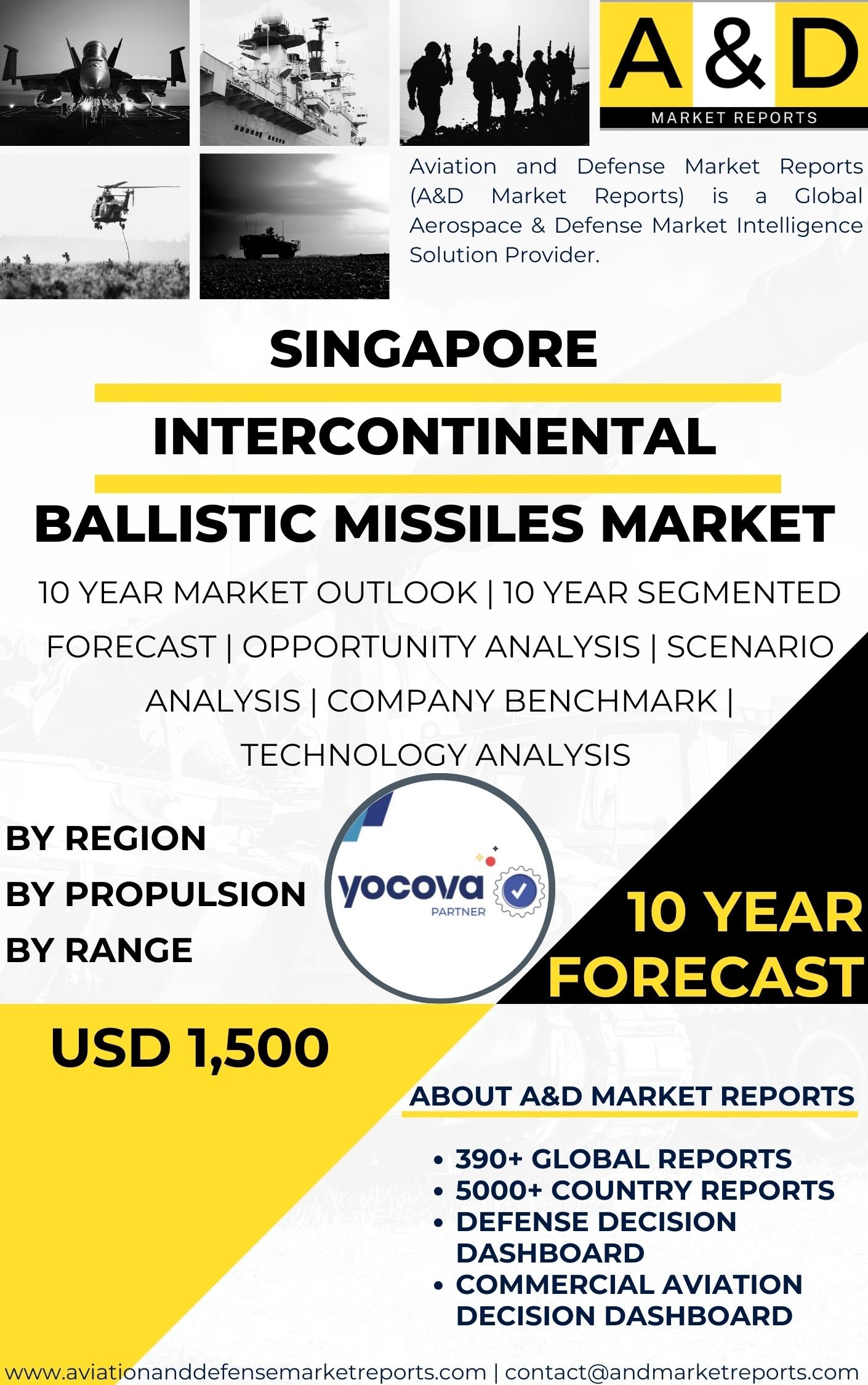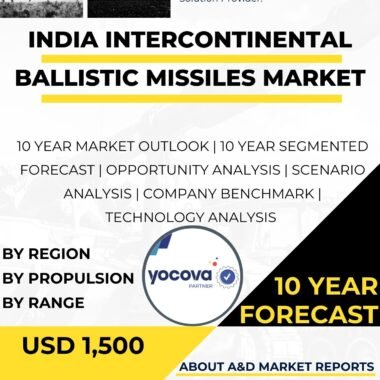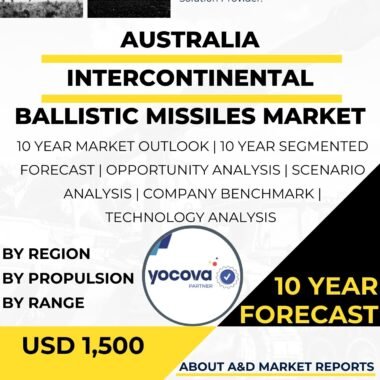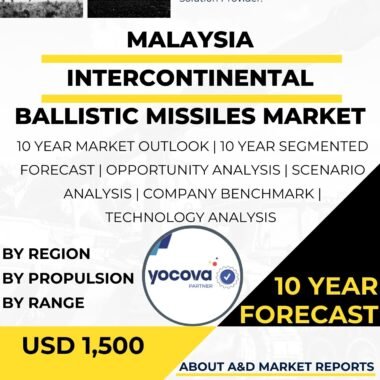Description
The ballistic missile market in Singapore has been relatively limited due to the country’s defense strategy, regional security environment, and international obligations. As a small and highly urbanized nation in Southeast Asia, Singapore places a strong emphasis on diplomatic engagement, maintaining a credible deterrent posture, and collaborating with regional partners to promote stability and security. While Singapore does not possess its own ballistic missile capabilities, it actively engages in defense cooperation and seeks advanced missile defense systems to protect its territory and assets.
Singapore’s defense strategy focuses on deterrence, meaning that the country seeks to prevent potential adversaries from considering aggressive actions by demonstrating a robust and credible defense capability. This strategy is achieved through a combination of advanced defense systems, a well-trained and professional military force, and international partnerships.
The Singaporean government’s approach to defense has traditionally been focused on developing a capable, agile, and technologically advanced military. While Singapore does not pursue ballistic missile development, it invests in other key areas of defense, such as naval and air capabilities, cyber security, and counter-terrorism.
Singapore’s strategic location in Southeast Asia and its status as a major global trade hub underscore the importance of safeguarding maritime and air routes. To address these needs, Singapore maintains a modern and capable Navy and Air Force, equipped with advanced naval vessels, aircraft, and missile defense systems.
Singapore’s interest in missile defense is evident in its acquisition of advanced surface-to-air missile systems. The Republic of Singapore Air Force operates various anti-aircraft missile systems, such as the Rafael Spyder and MBDA Aster surface-to-air missiles, to protect its airspace from potential aerial threats.
In recent years, Singapore has also procured advanced anti-ship missile systems to enhance its maritime defense capabilities. The Navy operates the RGM-84 Harpoon anti-ship missile, among other weapons, to protect its territorial waters and maritime interests.
While Singapore focuses on enhancing its defense capabilities, it actively collaborates with other countries through defense partnerships and multinational forums. Singapore is a member of the Five Power Defense Arrangements (FPDA), a regional defense pact that includes Australia, Malaysia, New Zealand, and the United Kingdom. The FPDA fosters regional security and cooperation, aiming to deter potential aggression in Southeast Asia.
In addition to the FPDA, Singapore engages in defense cooperation with other countries, including the United States, through various joint exercises and training programs. These collaborations aim to enhance interoperability, promote military-to-military ties, and support Singapore’s defense modernization efforts.
Singapore also participates in regional forums and initiatives, such as the ASEAN Defence Ministers’ Meeting (ADMM) and the ADMM-Plus, which promote dialogue and cooperation among Southeast Asian countries and their partners to address common security challenges.
In the context of the region’s security dynamics, Singapore pays close attention to developments in the missile capabilities of neighboring countries. As part of its strategic outlook, Singapore advocates for regional stability and the peaceful resolution of disputes.
The proliferation of ballistic missiles and other advanced weaponry in the Asia-Pacific region has raised concerns about regional security. Singapore supports efforts to prevent the further spread of missile technology and weapons of mass destruction, working with the international community through forums such as the United Nations Security Council and the Missile Technology Control Regime (MTCR).
Singapore’s commitment to international non-proliferation efforts is exemplified by its strict adherence to the principles outlined in the MTCR, a multilateral export control regime aimed at preventing the proliferation of missile technology. By adhering to these guidelines, Singapore seeks to contribute to global efforts to mitigate the risk of missile proliferation and maintain regional security.
As a small nation with no territorial expansionist ambitions, Singapore’s defense posture emphasizes diplomacy, cooperation, and international norms. The absence of ballistic missile development in Singapore is consistent with its focus on maintaining a credible deterrence capability without exacerbating regional tensions.
While Singapore does not engage in the production or acquisition of ballistic missiles, it remains committed to maintaining a strong and capable defense force, capable of safeguarding its sovereignty and interests. By investing in modern and advanced defense systems, collaborating with regional partners, and adhering to international norms, Singapore plays an essential role in promoting stability and security in the Asia-Pacific region. The country’s strategic outlook ensures that it remains an active and responsible player in regional and international efforts to address security challenges effectively.




